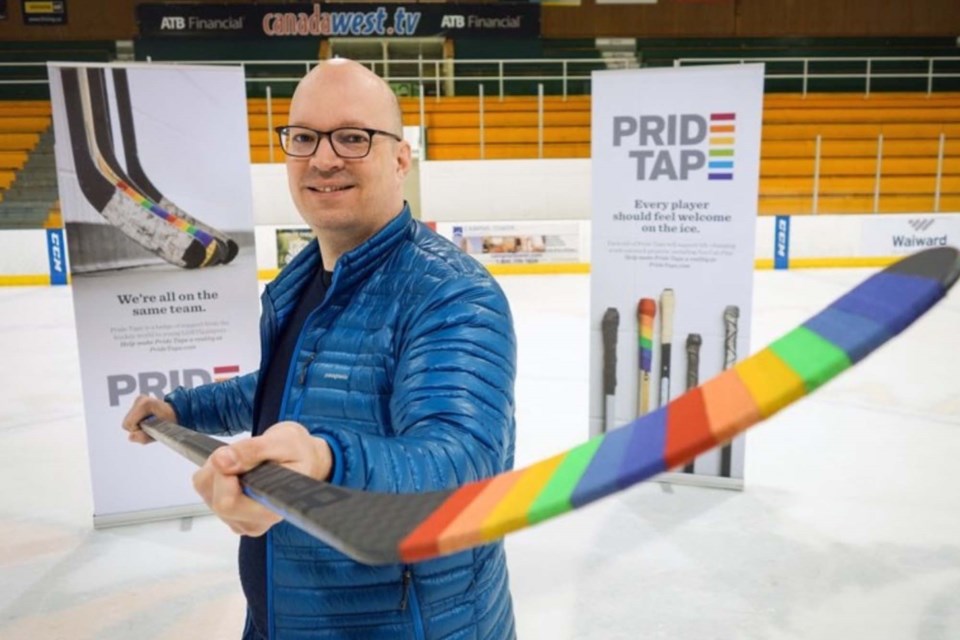The NHL has backtracked its decision to ban rainbow 2SLGBTQ+-themed Pride Tape from games, but Kristopher Wells, local advocate and one of the creators of Pride Tape, said that the move isn’t enough to repair the organization’s damaged relationship with the community.
Earlier this month the NHL disallowed players from wearing any themed gear in support of various causes including breast cancer, military appreciation and 2SLGBTQ+ pride.
The decision came after some players in the league drew controversy for refusing to wear pride-themed gear during theme night warm-ups.
Wells, who is also a Canada research chair for the public understanding of sexual and gender minority youth and professor at Grant MacEwan, said that rescinding the ban is a step in the right direction and an important victory for hockey and human rights. But to mend its ties with 2SLGBTQ+ people, the NHL should “acknowledge the harm that’s been done.”
“The only way that can happen is by genuinely and authentically working alongside LGBT communities,” he said.
He sees the ban as part of a larger cultural problem with hockey.
“We keep hearing story after story about sexualized violence, abuse, trauma, and unsafe locker rooms. A lot more needs to happen,” he said.
To make lasting change, Wells believes that education about these issues needs to happen not only in the NHL but also in sports communities at the grassroots level.
Pride Tape started to promote diversity, equity and inclusion through sport.
“It had been used long before there were pride nights,” Wells said. “Unlike the jerseys, which everybody on the team had to wear, pride tape was always designed to be optional. We wanted to know who the real allies were.”
Wells said the earlier decision to ban Pride Tape was extremely disappointing because of how closely he and the rest of the Pride Tape team worked with the NHL.
“It was a real setback, not only to Pride Tape, but to all the really important diversity, equity and inclusion work that the NHL had been doing for years,” he said. “A lot of the NHL teams didn’t support the ban either.”
It can be hard for people who are not part of a sexual or gender minority to understand the significance of seemingly small things like rainbow-coloured tape on a hockey stick or a rainbow crosswalk, he said.
But the pride tape serves as an easy way to show 2SLGBTQ+ people that they are welcome as fans or players of sports, especially when some sports communities have historically been hostile towards sexual and gender minorities.
“If you’re in a heterosexual relationship, how often do you have to stop and think about holding your partner’s hand in public? ... [For lesbian and gay people] it’s always a political act because you don’t know what the repercussions are going to be,” he said.
“I think we’ll get there as a society when we no longer need Pride Tape, or we no longer need to celebrate Pride Month, but clearly we’re a long way off from that.”




